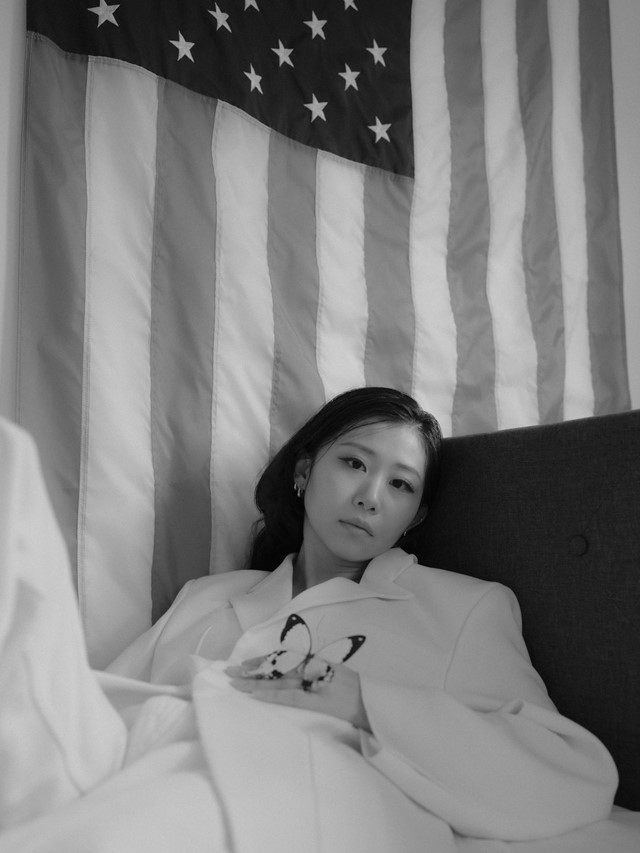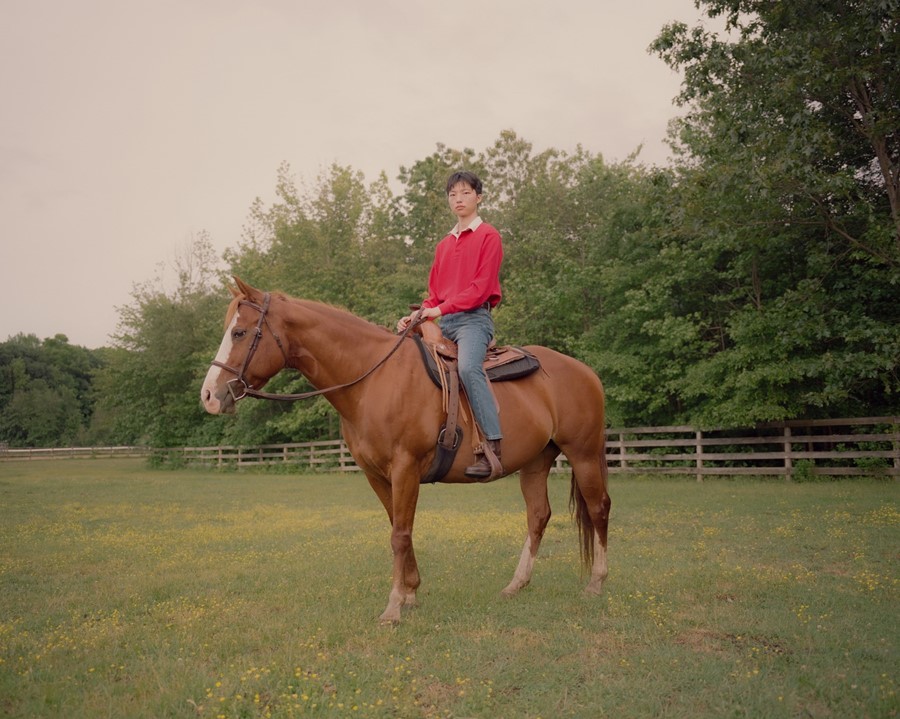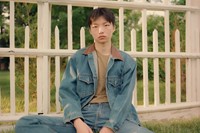“It shouldn’t take violence and pain to create relevance for a vulnerable community”: Photographer Andrew Kung and creative director Kathleen Namgung speak to Arthur Tam about their new photo series, Perpetual Foreigner
Kathleen Namgung recalls an incident in first grade when a classmate left a note on her desk that read: “Let’s bomb Korea.” At the time, Namgung was only seven and had recently immigrated to America, a land she and her family perceived as a welcoming place. At such a young age, she was more confused about the note than angry. But as the years went on, Namgung became increasingly aware of how the perception of her race would impact her life. The boys in her high school gym class would scoff and say, “don’t pick her. Asian girls aren’t good at sports. They’re weak and fragile.”
Namgung became a naturalised American in 2016, but her newly earned citizenship did not change the aggressions she faced, nor has citizenship ever altered the reality of othering, invisibility, and objectification Asians and Asian Americans have long experienced. “A year ago, I don’t think we even had the space to say that our community is dying and facing all this hate,” says Namgung, referring to the recent terrifying rise of anti-Asian hate crimes, punctuated by the Atlanta-area shootings in Georgia, where eight were murdered, six of whom were Asian women. ”I don’t like her walking alone anymore, and we both carry pepper spray,” says partner, co-creative director and photographer Andrew Kung.
During these precarious times, the couple released a photo series called Perpetual Foreigner, which highlights Asian Americans as the ideal portrait of American Life. “We were reflecting about this project for a long time, even before the hate crimes and the shooting were given national attention,” says Namgung. “It’s unfortunate that with everything happening, these portraits have become timelier, but it’s only confirmation of our invisibility. It shouldn’t take violence and pain to create relevance for a vulnerable community.”
Perpetual Foreigner is a collection of 15 images and a short film capturing the intimacy, relationships and hopes of Asians and Asian Americans from a diverse cross-section of the community. The objective: to reclaim the Americana aesthetic and free the perception of Asian Americans from the white gaze. ”For us, we wanted to make sure we had good representation across the board – gender, sexuality, ethnicity, but also the different types of forms individuals, couples and families,” says Kung. “We wanted to bring nuance and make the distinction between placing Asian Americans in ‘white American imagery’ to ’fit in’ and celebrating belonging and challenging what it means to be American.”

Shot by Kung and styled and directed by Namgung, Perpetual Foreigner takes inspiration from cowboys, idyllic scenery of the American Northeast and 90s fashion campaigns à la Ralph Lauren. The feeling and mood is soft, relaxed and free – as if the Asian American faces in the photos never experienced diasporic trauma, nor the restraints of being stereotyped. These characters who are sitting beside a lake, riding on horseback or reclining on a pickup truck are finally experiencing a part of America they’ve contributed to, but rarely had access to. “It’s important to acknowledge that all the things we call American culture are a blend and mix,” says Namgung. “Nothing we call American culture was ever just white America. So, it’s important that in these images we reclaim that narrative.”
A portrait of Namgung is also in the photo series. In it, the American flag lends itself as the backdrop, and she looks straight at the camera as she’s reclining with a butterfly, gently resting on her hand. It’s as if she’s looking toward us, pondering a question; the same question that Asian Americans wonder about all time. When times are good, we are transformed, elevated and accepted – but when times are bad, will we be cast aside, shunned and reverted to our position as a perpetual foreigner? Will Namgung be transported back to the little girl who encounters a boy who wants to bomb her country of heritage? “I think time will heal a lot of things,” says Namgung. “But we have to stay resilient. It’s going to be a very slow process.”
Watch the Perpetual Foreigner short film below.






